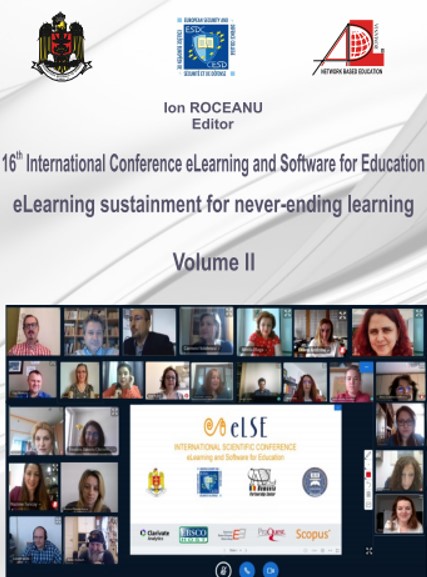USE OF E-LEARNING RESOURCES IN FOREIGN LANGUAGE TEACHING PROCESS AT TECHNICAL UNIVERSITY
USE OF E-LEARNING RESOURCES IN FOREIGN LANGUAGE TEACHING PROCESS AT TECHNICAL UNIVERSITY
Author(s): Yulia Savinova, Natalia MOKROVASubject(s): Foreign languages learning, Language acquisition, Higher Education , ICT Information and Communications Technologies, Distance learning / e-learning, Pedagogy
Published by: Carol I National Defence University Publishing House
Keywords: e-learning; blended learning; educational e-resource; Moodle platform; foreign language;
Summary/Abstract: The paper deals with the possibilities of applying information and communication technologies, which have become widespread in all spheres of human activities, including education. Various approaches with the use of e-learning resources in the process of foreign language teaching are described in detail, as well as the key concepts of e-learning, its main challenges and techniques. The paper focuses on advantages and drawbacks of the e-learning system in comparison with the traditional system of education. In view of advanced educational standards, the importance of actions, aimed at enhancing the level of foreign language proficiency is emphasized. The authors examine the mechanisms of e-learning resources integration in the process of education. The central focus of the paper is the Moodle platform, which has gained wide popularity in the e-learning environment. Moodle is an open, free of charge learning environment with a user-friendly management system. It allows to cover a large number of learners, which is the most relevant for universities. The present platform organizes the process of foreign language teaching, and using various methods of control, effectively manages this process. Moreover, it fosters skills of students’ independent work. However, in spite of all advantages of this platform, it has some drawbacks, such as significant financial implications in the implementation of the resource, inconsistency with the users’ query, difficulty of planning, uneven development of informational technologies and insufficient monitoring by university teachers. The efficiency of the isolated use of electronic educational resources has been questioned in the paper. The authors come to the conclusion that such method of education is not always productive in the pedagogical aspect, as it does not provide direct interaction between teachers and learners, which is especially important when learning a foreign language. The authors suggest undertaking specific actions to address the problem. One of them is to combine informational technologies and traditional methods of education. The authors are convinced that a blended learning flexibility model enhances the degree of learners’ autonomy, helps to use contact hours more rationally. The paper also addresses the perspectives of using an educational e-resource Moodle in the modern educational process.
Journal: Conference proceedings of »eLearning and Software for Education« (eLSE)
- Issue Year: 16/2020
- Issue No: 02
- Page Range: 470-475
- Page Count: 6
- Language: English

